May 14, 2025 | 05:38 GMT +7
May 14, 2025 | 05:38 GMT +7
Hotline: 0913.378.918
May 14, 2025 | 05:38 GMT +7
Hotline: 0913.378.918
According to the Ministry of Agriculture and Rural Development, the total area of bamboo cultivation across Vietnam reaches nearly 1.6 million ha, mostly distributed in cities and provinces. There are 37 provinces owning a planting area of over 10,000 ha. Every year Vietnam logs 500 - 600 million bamboos, resulting in a total output of approximately 2.5 - 3 million tons. Bamboo export value is USD 300-400 million/year and 25% of the output is exported to the USA. Korea and Japan are also Vietnam’s large bamboo importers with a proportion of approximately 15% each. With the trend of green consumption and sustainable consumption, bamboo products are increasingly popular in the markets.
It can be said that bamboo is the regenerative material of the future as it has the fastest growth and maturity speed of all trees, only 3 to 5 years. Another thing is that bamboo can regenerate itself without having to replant after harvesting, and it does not require much care or pesticides to grow.
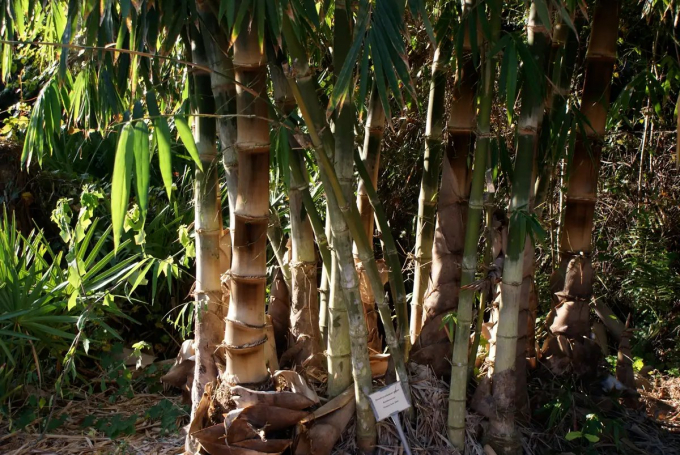
Manh Tong bamboo – a giant bamboo variety that can absorb more CO2 than common bamboo.
Bamboo is a famous plant for its resistance to climate change because it can absorb much larger amounts of CO2, specifically 1.5-2 times and release 35% more oxygen than any other tree in one growth life cycle. Bamboo can also become raw material for many things, from common items such as notebooks, water bottles, clothes, furniture and exteriors to biological ingredients, biofuels, cosmetics, pharmaceuticals as well as food such as bamboo shoots, beer, and wine.
According to the Vietnam bamboo value chain sustainable and comprehensive development project, the world bamboo market is growing. The world bamboo market had a scale of USD 57.8 billion in 2021 and is expected to reach USD 82.9 billion by 2028.
China is currently the leading country in exporting bamboo in the world, followed by the EU, Philippines, Canada, Mexico, and Vietnam. The largest importers of bamboo include the EU, the USA, Japan, India, and South Korea.
Having a certain position among the countries with strengths in the bamboo industry, Vietnam mainly exports to the markets of Japan, the USA, and the EU. However, regarding export value, up to 65% of bamboo exports are unprocessed raw materials, and there exists a lack of high-value industrial products.
Sunstar Investment Joint Stock Company (SStar JSC) is planning to plant two billion bamboo trees with a total area of up to 500,000 ha. The planting area will spread from the northern mountainous provinces to the entire central region. These provinces are considered to have suitable climates for growing bamboo.
Apart from the common bamboo variety of dendrocalamus barbatus, SStar JSC will combine planting giant bamboo with the scientific name of dendrocalamus asper, also known as Manh Tong bamboo. The enterprise is currently trial planting 20 ha of Manh Tong bamboo in Quang Nam and Quang Ngai provinces.
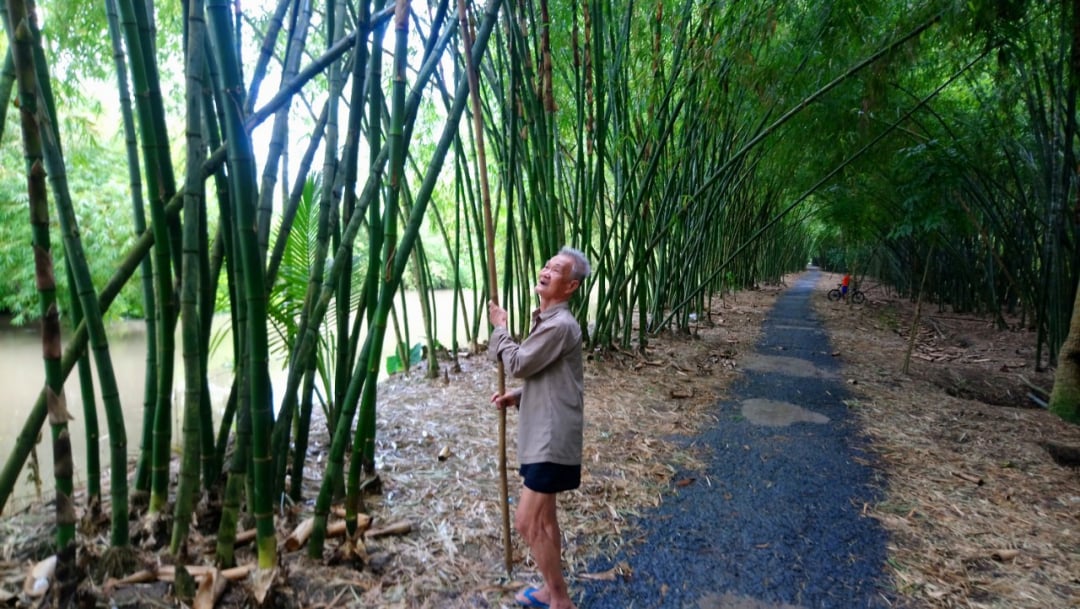
Star JSC will sign 10 - 20 year cooperation contracts with people, cooperatives and businesses that have land to grow bamboo.
Studies show that bamboo can mature very quickly. In only 3 months a bamboo can reach a height of 15-20m. And bamboo grown in Vietnam has the fastest growth rate in the world since it can grow in all types of soil in this land. That is another reason why Vietnamese bamboo can absorb more CO2 and produce more oxygen.
However, it takes 3 years for bamboo to really mature in the core and age well enough to be used as raw material. A bamboo bush from planting to harvest will take 6-7 years. And for the bamboo to mature into a large bush, enough to exploit 30% per year, it takes 9-10 years. The two billion bamboo program of SStar JSC will therefore last for 10 years.
According to Mr. Nguyen Trong Nghia, General Director of SStar JSC, planting bamboo trees is not only a way to help farmers eliminate hunger and reduce poverty but also enrich their homeland as well as the poorest and most difficult areas of Vietnam. “We provide support to families currently cooperating with the bamboo processing factory in Thanh Hoa, who once made less than VND 100,000/day. Now people here can earn an income of VND 500,000 - 1 million/day."
The company currently can consume 2,000 tons of bamboo every day for the locals. With such a large consumption power, SStar JSC has made a commitment: wherever people grow bamboo, the company would set up a factory there to purchase and underwrite 100% of bamboo for them.
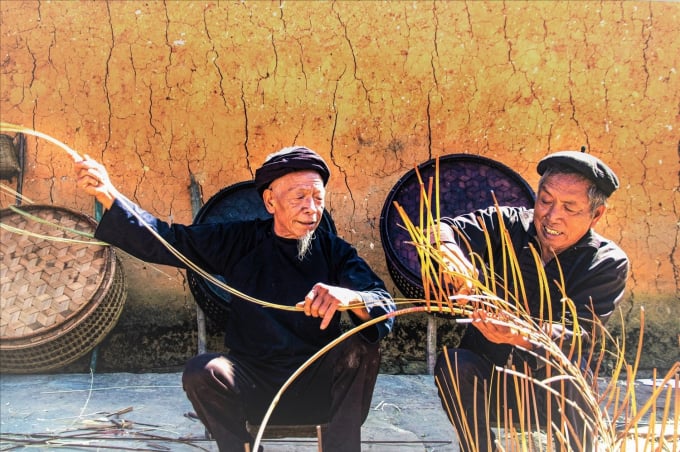
According to the Administration of Forestry (Ministry of Agriculture and Rural Development), Vietnam currently has approximately 300,000 rural workers participating in bamboo planting, exploitation and processing activities.
In addition to ensuring the source of raw materials for processing and improving people's income, what weighs on Mr. Nguyen Trong Nghia’s mind is the story of growing bamboo to improve the environment.
The Central land is considered a promised land for bamboo to be grown. The reason is that the more water there is, the stronger the bamboo will grow. The bamboo will help absorb water, regenerate and protect watershed forests in this area.
“We can see the story of storms and floods destroying resources and people’s properties every year. Instead of going to charity, we have to do something so that the people here have a plan to get rich themselves, get rid of existing difficulties and poverty. And bamboo is the answer,” said Mr. Nguyen Trong Nghia.
Translated by Samuel Pham

(VAN) Deputy Minister of Agriculture and Environment Hoang Trung affirmed that floriculture and ornamental plants are a growing industry that receives significant global attention.

(VAN) The three staple crops dominating modern diets – corn, rice and wheat – are familiar to Americans. However, fourth place is held by a dark horse: cassava.
/2025/05/10/4037-3-223011_495.jpg)
(VAN) Remote sensing technology is becoming an indispensable tool in monitoring resources, developing modern agriculture, and protecting the environment in Vietnam.

(VAN) The trash bag used on fishing vessels can withstand rough sea conditions, including level 8 to level 10 winds and waves. Notably, it can be hung anywhere on the boat.
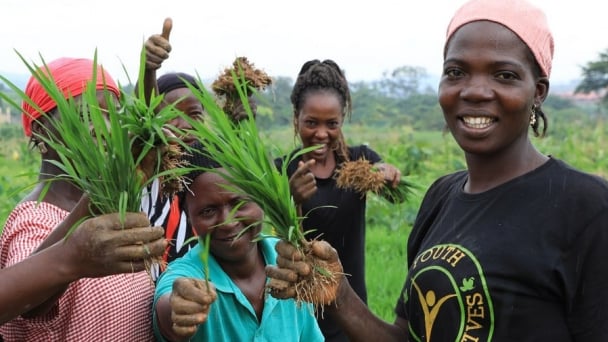
(VAN) African leaders launched the Kampala Declaration on Building Resilient and Sustainable Agrifood Systems in Africa, marking a bold step toward transforming the continent's agriculture.
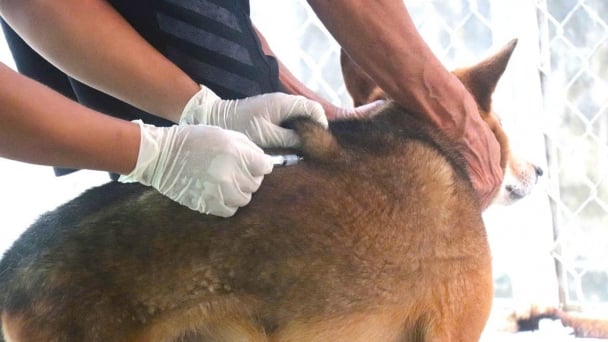
(VAN) Can Tho City Department of Agriculture and Environment demands administrative sanctions on households that do not comply with vaccinating their livestock as a deterrent.
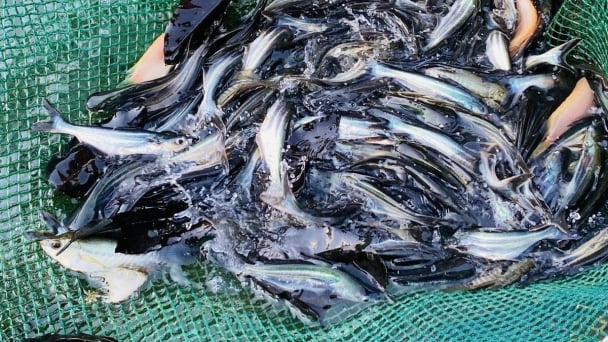
(VAN) With a strict veterinary process and close production chains, Dong Thap ensures that pangasius is disease-free from farm to table.